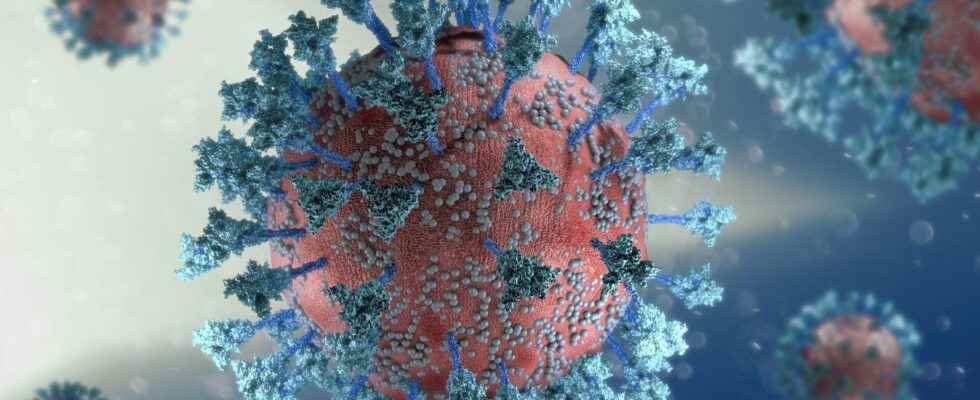Long Covid is the long-term consequence of an acute infection with SARS-CoV-2. A long and disabling disease, it is difficult for doctors to diagnose due to the great diversity of symptoms experienced by patients. The scientific community is looking for biomarkers that could make it easier for doctors to identify people with long Covid. A research team from Boston Hospital in Massachusetts studied the persistence of antigens from coronavirus in people still affected by Covid-19 at least four weeks after the initial infection.
Circulating antigens, in the blood of people with long Covid
The study, in pre-publication and carried out on a small group of volunteers (63 volunteers), some of whom were diagnosed with “long Covid”, detected bits of the protein S (the subunit 1), the entire S protein, N proteins (the nucleocapsid) in the plasma of the participants. The follow-up lasted 12 months and for 65% of the patients, one of the three antigens was identified at any time during the follow-up; whole protein S being the most frequent antigen. In patients who have the Covid-19 but no sequels, these circulating antigens are absent. On their own, these results are not robust enough to say that the circulating antigens of the coronavirus are a reliable marker for diagnosing the entire population, nor that they have any involvement in the symptoms of long Covid.
Still a long search
But the clues are piling up. They are drawn from studies independent of each other, often modest, and point in the same direction: the coronavirus could persist in the form of an active reservoir in several organs of the human body. A study conducted after the death of 44 patients indicates the presence of coronavirus RNA in respiratory and cardiac tissues and in the intestines up to 230 days after the onset of symptoms. In children, the severe form of Covidcalled MISC or PIMS, would be due in part to an alteration of the intestinal barrier by the virus. In this case, pockets of active virus also form in the intestines and release viral antigens into the bloodstream. The coronavirus also seems to unbalance the intestinal flora in people with long Covid.
The intestines appear as an important organ in the etiology of long Covid. Despite these consistent observations, to date no study has precisely demonstrated the origin or origins of long Covid. The viral reservoirs in the body, the persistent antigens, but also theinflammation are three factors considered to be involved in long Covid, the causal link between their presence and the symptoms remains to be demonstrated.
Reading ideas for the summer with Futura?
To celebrate the start of the holidays, we offer you the Mag Futura at the preferential price of 15 € instead of 19 €, i.e. a reduction of 20% !
What is Mag Futura?
- Our first paper journal of more than 200 pages to make science accessible to as many people as possible
- 4 major scientific questions for 2022, from the Earth to the Moon
- Home delivery*
*Special offer valid until July 19. Delivery is made in France (excluding metropolitan France), Switzerland, Belgium.
Interested in what you just read?
